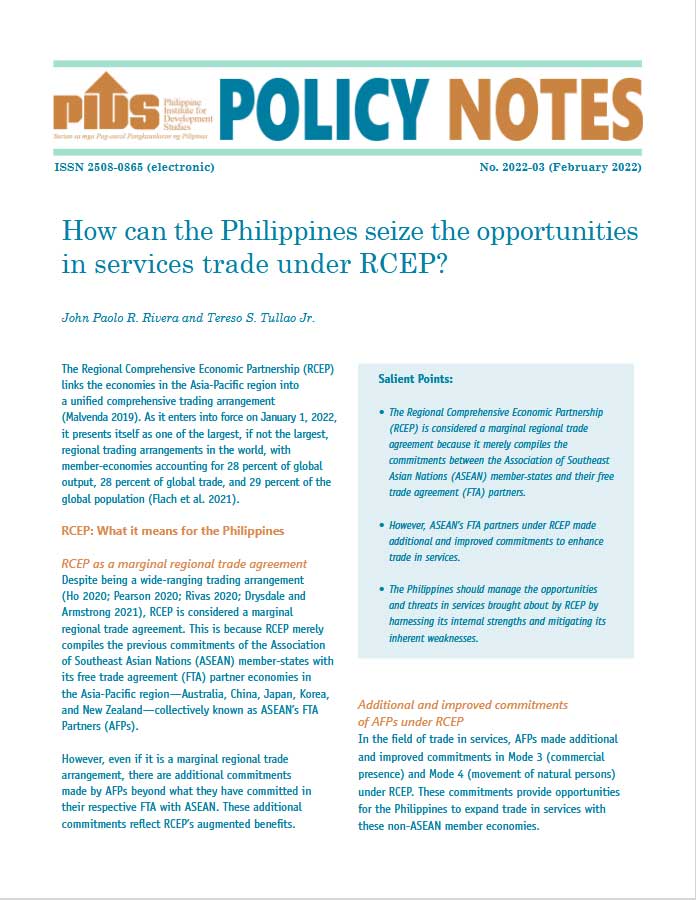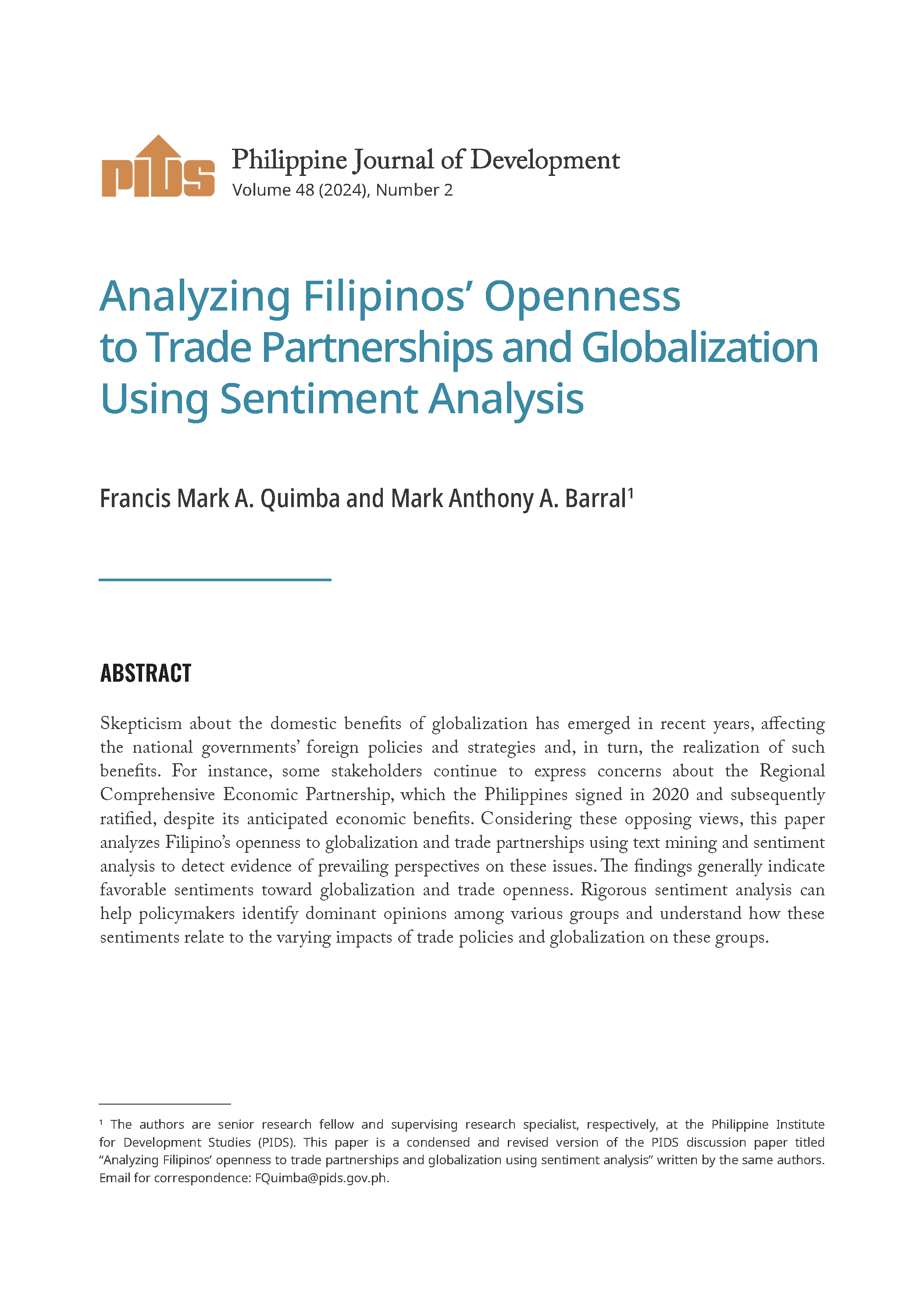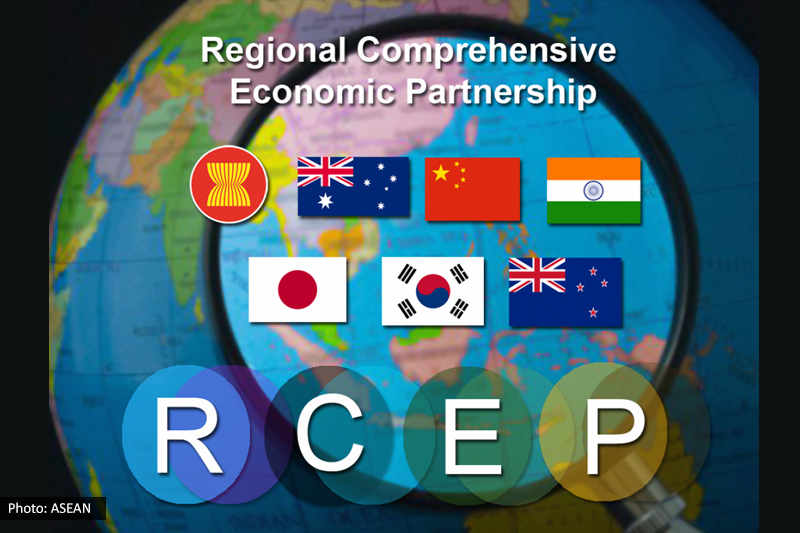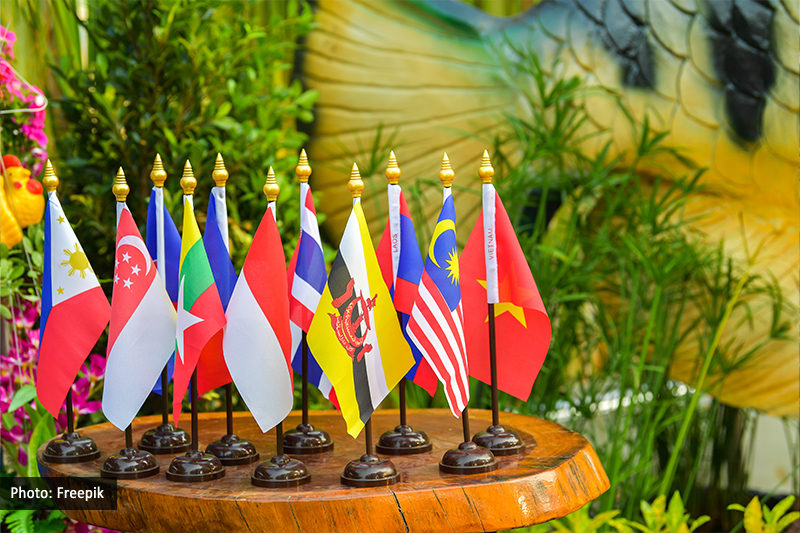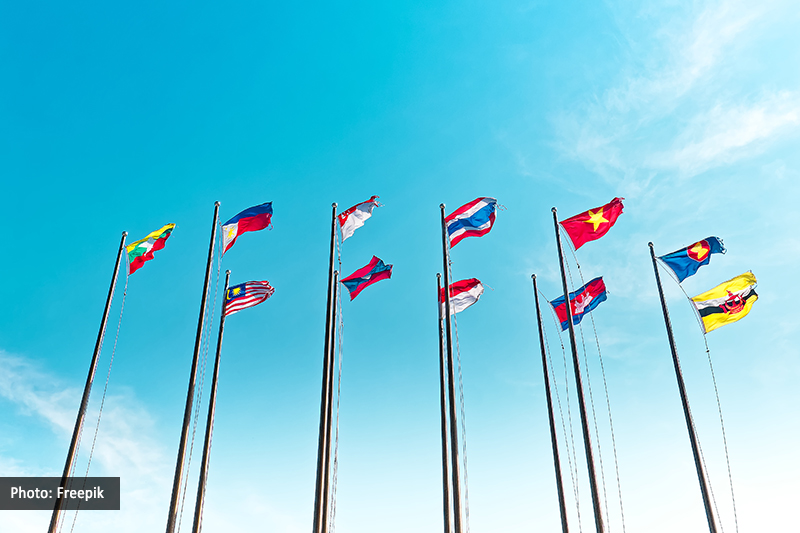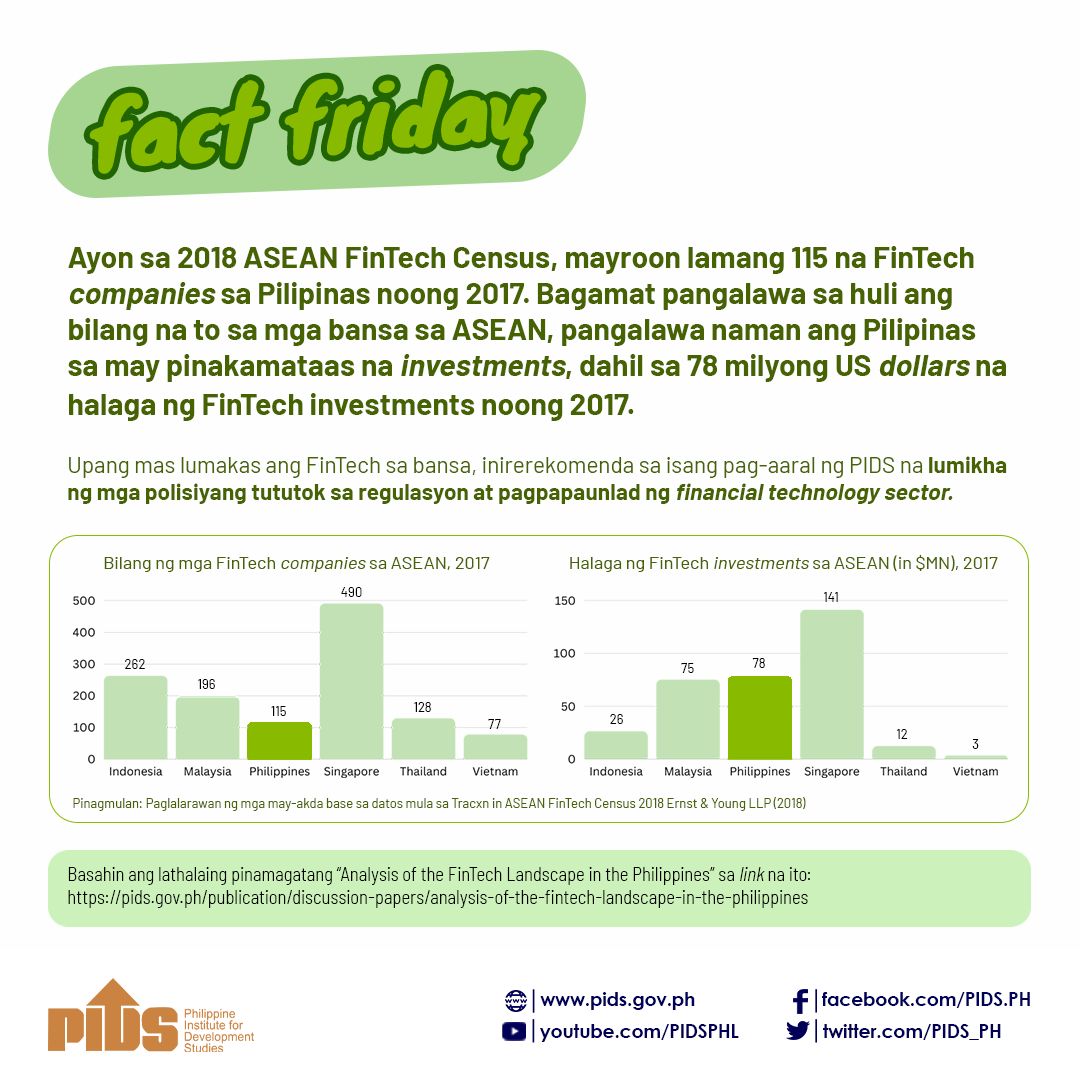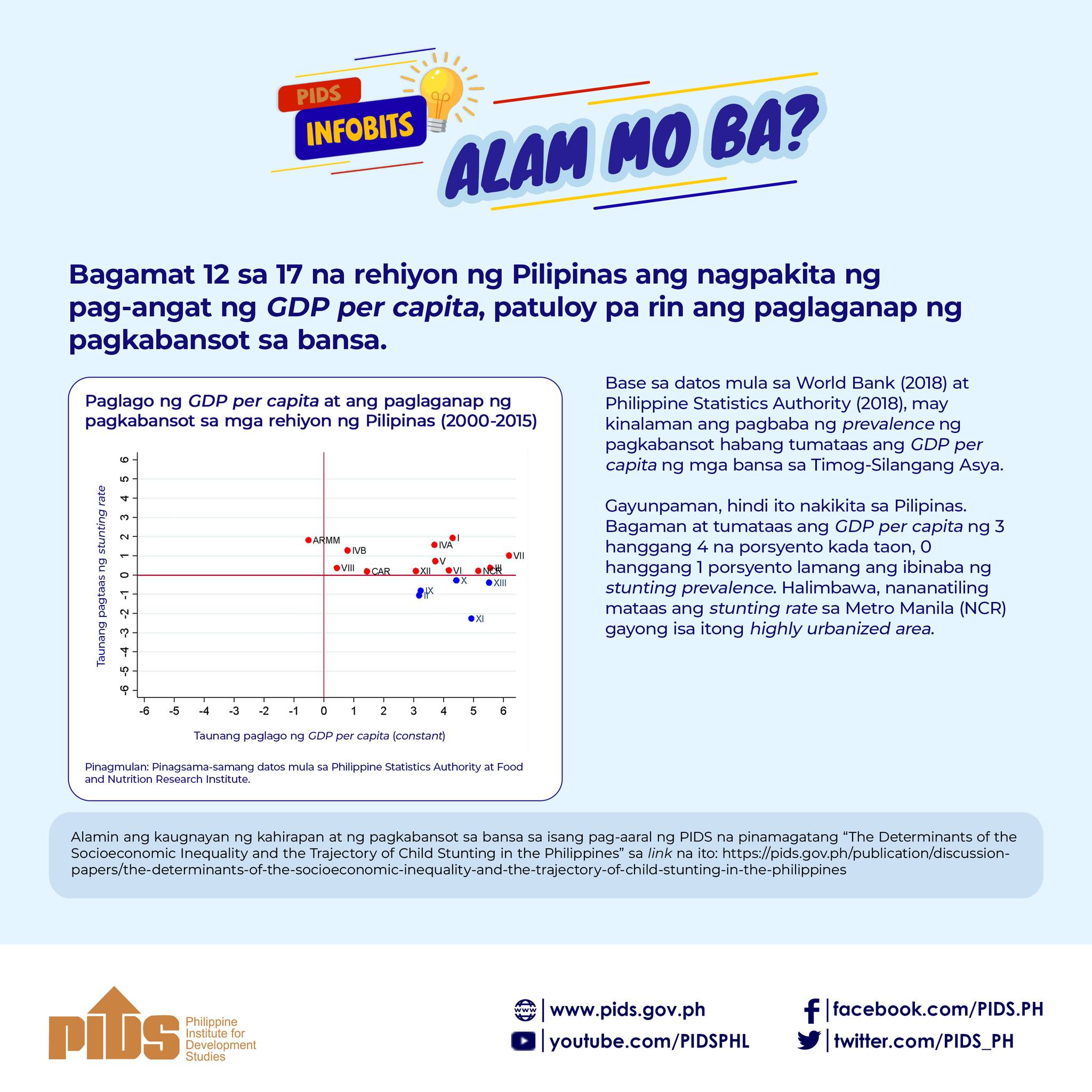The Regional Comprehensive Economic Agreement (RCEP) entered into force on January 1, 2022, linking the 10 member-states of the Association of Southeast Asian Nations (ASEAN) with their neighbors in the Asia-Pacific region, namely, Australia, China, Japan, New Zealand, and South Korea, into a unified free trade agreement (FTA). However, RCEP is considered a marginal regional trade agreement because it simply compiles the previous commitments between the ASEAN member-states and their FTA partners. A closer look reveals that the RCEP includes improved commitments from ASEAN's FTA partners in trade in services, which the Philippines can exploit. To seize these opportunities, this Policy Note stresses that the Philippines manage its market access limitations by maximizing its strengths and mitigating its weaknesses. Further, it argues that addressing inadequacies in infrastructure and relaxing constitutional restraints, particularly on allowing the entry of foreign participants to critical sectors, are necessary for the country to do well in services trade. This Policy Notes also maintains that the RCEP can be an avenue for upgrading the country's human capital.

